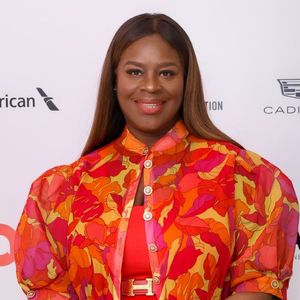CONTACTStaffCAREER OPPORTUNITIESADVERTISE WITH USPRIVACY POLICYPRIVACY PREFERENCESTERMS OF USELEGAL NOTICE
© 2024 Pride Publishing Inc.
All Rights reserved
All Rights reserved
By continuing to use our site, you agree to our Private Policy and Terms of Use.
The scenario might go something like this: A drug company develops a vaccine that could help wipe out most future cases of cervical cancer. State governments add it to their list of required vaccines for school. Girls line up for shots. Years later, fewer of them die prematurely--and everyone is happier. Easy, right?
But in the real world, the notion of requiring the HPV vaccine for young people is much more complicated than that. Part of the controversy comes from the fact that--unlike the measles or whooping cough--you don't get the genital warts and cancer caused by the human papillomavirus from casual contact.
''The fact that it is a sexually transmitted disease has elevated it to another level,'' says Alina Salganicoff, the director of women's health policy at the Kaiser Family Foundation.
While proponents say requiring the vaccine would get it to the most people, critics have complained that the HPV vaccine would give teens a false sense of security and undermine abstinence-only education and parental autonomy. The debate has been especially hot in states like Texas, where state lawmakers are making moves to rescind a vaccine mandate backed by Gov. Rick Perry.
But not all the criticism for mandates is coming from conservative family groups and parents who oppose any vaccines.
For one, some members of the medical establishment have expressed discomfort with the lobbying efforts from Merck, maker of the HPV vaccine known as Gardasil.
That wariness persists even though Merck backed off from its mandate push last month, saying it would instead provide vaccine information only if requested by government officials.
Meanwhile, there are concerns about the cost of the vaccine and whether insurance companies will pay for it (the three-dose regimen costs about $360).
Some also worry that, in this age of drug recalls, more research is needed to determine the long-term effects of the HPV vaccine.
''I think the vaccine has a lot of potential to do a lot of good, but after more testing has been done,'' says Yvonne K. Fulbright, a sexologist and author based in New York City and Washington, D.C. ''You need to have the people's public health at interest and not just financial gain.''
She says it would probably surprise some people to hear her say it--''but right now, if I had a daughter, I would not want her to get the vaccine.''
Even one researcher whose work has been funded by Merck says he feels ''ambivalent'' about the current push for mandates in Texas, New Mexico, and Virginia.
''I understand that mandates are the best way to protect the greatest number of people. It's the best way to deal with health care disparity issues for those who have trouble accessing health care and those who don't get Pap testing as regularly,'' says Gregory Zimet, a pediatrics professor at the Indiana University School of Medicine who has studied parents' attitudes toward the vaccines for HPV and other diseases.
But like others in his field, he thinks Merck pushed too quickly for mandates.
''There should have been more reasoned and thought-out debate,'' he says. ''It's distracted from the fact that we have a way to reduce health care costs, reduce suffering, and save lives.''
In this country, there are about 9,700 new cases of cervical cancer and 3,700 deaths each year. Keeping those numbers in mind, Zimet says his surveys of parents have found that the large majority are interested in vaccinating their daughters against HPV.
Even two of the largest conservative family groups--Focus on the Family and the Family Research Council--say they have no problem with the vaccine, only with a mandate. Proponents point out that such laws generally allow parents to opt out of the requirement for religious or philosophical reasons.
''Anything that is a preventative to help women--and prevent cancer--is a good thing,'' says Moira Gaul, director of women's and reproductive health at the Family Research Council. ''A vaccine in and of itself doesn't promote or deter behavior.''
She says her organization simply believes that parents should make the decision about whether the vaccine is best for their children.
Other parents worry that, amid all the political discussion, ultimately girls who are eligible for the vaccine will be left out of the discussion.
''Does the child have no rights whatsoever? Don't they have a say?'' asks Laurie Rhind, a mom in Salem, N.H., who has two teenagers. After making the decision together, her 13-year-old daughter is scheduled to get the first of three HPV vaccine shots next month.
''I think there are too many adults thinking that our teenagers are uninformed and belligerent and can't make the right decision.'' (Martha Irvine, AP)
Want more breaking equality news & trending entertainment stories?
Check out our NEW 24/7 streaming service: the Advocate Channel!
Download the Advocate Channel App for your mobile phone and your favorite streaming device!
From our Sponsors
Most Popular
Here Are Our 2024 Election Predictions. Will They Come True?
November 07 2023 1:46 PM
Meet all 37 of the queer women in this season's WNBA
April 17 2024 11:24 AM
17 Celebs Who Are Out & Proud of Their Trans & Nonbinary Kids
November 30 2023 10:41 AM
Here Are the 15 Most LGBTQ-Friendly Cities in the U.S.
November 01 2023 5:09 PM
Which State Is the Queerest? These Are the States With the Most LGBTQ+ People
December 11 2023 10:00 AM
These 27 Senate Hearing Room Gay Sex Jokes Are Truly Exquisite
December 17 2023 3:33 PM
10 Cheeky and Homoerotic Photos From Bob Mizer's Nude Films
November 18 2023 10:05 PM
42 Flaming Hot Photos From 2024's Australian Firefighters Calendar
November 10 2023 6:08 PM
These Are the 5 States With the Smallest Percentage of LGBTQ+ People
December 13 2023 9:15 AM
Here are the 15 gayest travel destinations in the world: report
March 26 2024 9:23 AM
Watch Now: Advocate Channel
Trending Stories & News
For more news and videos on advocatechannel.com, click here.
Trending Stories & News
For more news and videos on advocatechannel.com, click here.
Latest Stories
Joe Biden admin marks Earth Day with major environmental initiatives
April 22 2024 4:18 PM
Texas Gov. Greg Abbott: 'We want to end' trans and gender nonconforming teachers
April 22 2024 4:13 PM
Nonbinary 17-year-old killed two years after being reported missing
April 22 2024 3:46 PM

Pride
Yahoo FeedIndulge in luxury and sensuality with The Pride Store’s Taurus gift guide
April 22 2024 11:46 AM
The gay man leading the Earth Day Initiative offers hope for the future
April 22 2024 9:00 AM
Pattie Gonia takes drag and fierceness to Capitol Hill to voice environmental concerns
April 22 2024 8:23 AM
Jodie Foster leaves her mark in cement at L.A.'s Chinese Theatre
April 22 2024 7:55 AM
Climate change has a bigger impact on LGBTQ+ couples than straight couples. Here's how
April 22 2024 7:42 AM
Iraq postpones vote on bill punishing gay sex with death
April 20 2024 1:31 PM
Russian poetry contest bans entries from transgender poets
April 20 2024 1:25 PM
Here's who won 'RuPaul's Drag Race' season 16
April 20 2024 1:01 PM
The Tip Off: A beginners guide to the WNBA
April 20 2024 11:06 AM
John Fetterman challenges Pa. school board’s cancellation of talk by gay actor
April 19 2024 2:39 PM
New study finds inadequate response to mpox outbreak
April 19 2024 2:06 PM
Trending stories
Most Recent
Recommended Stories for You


















































































